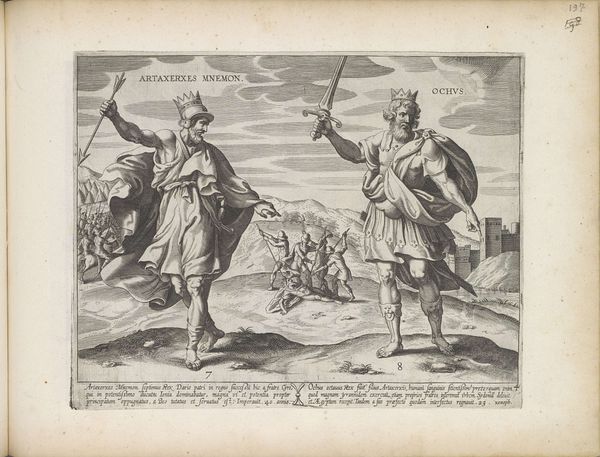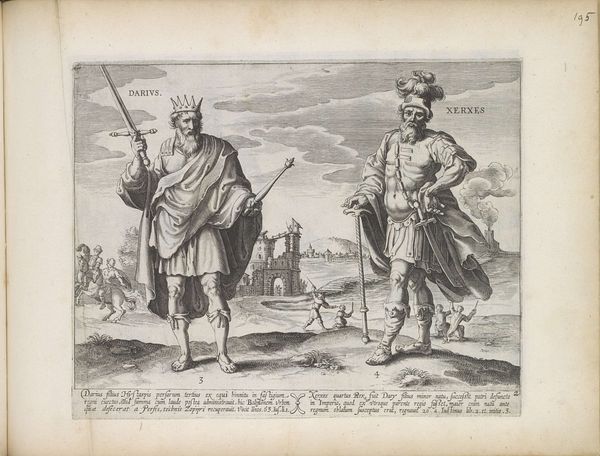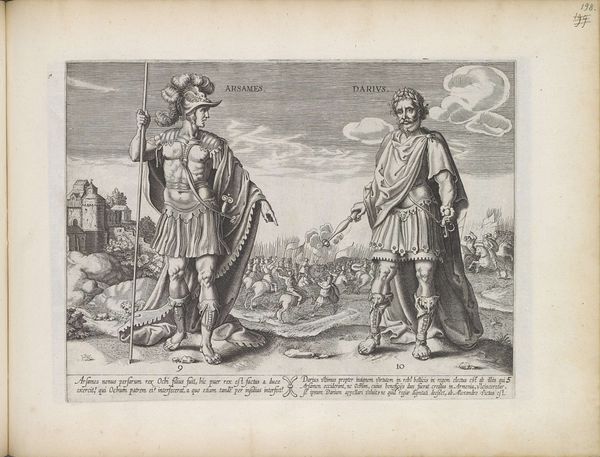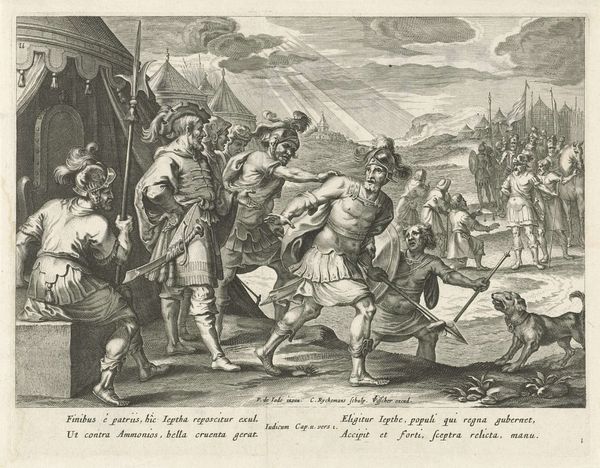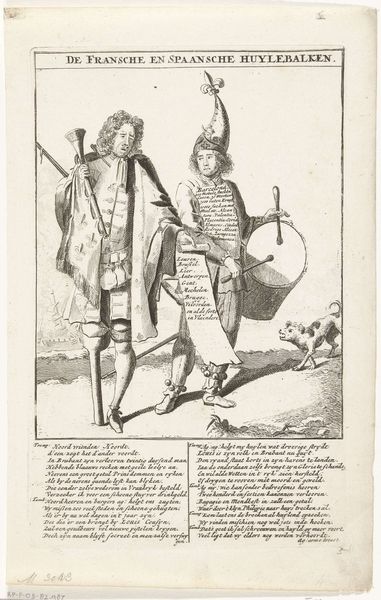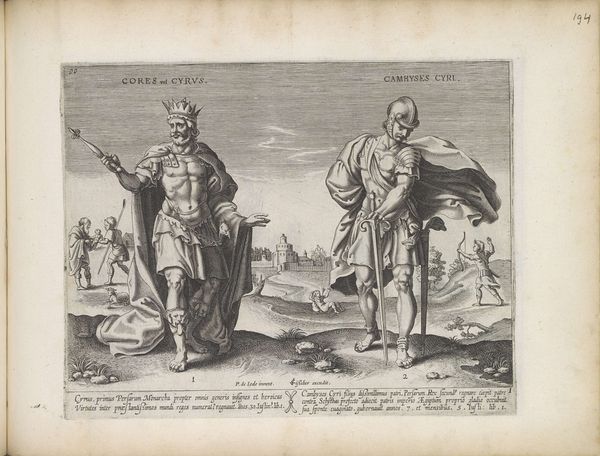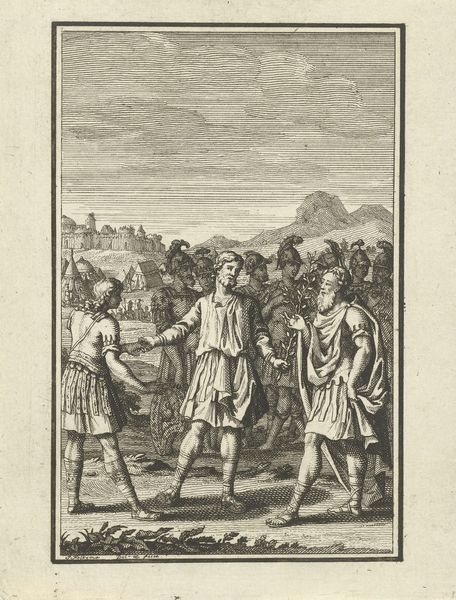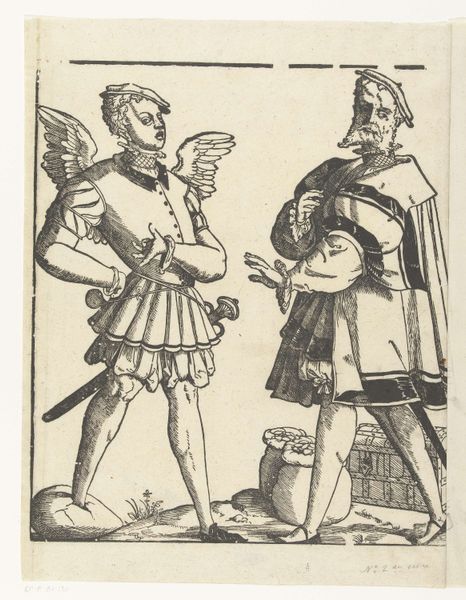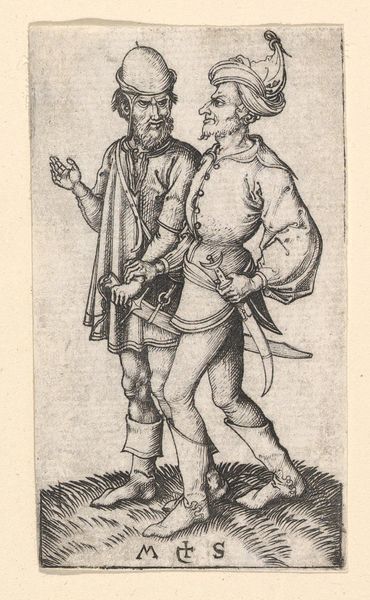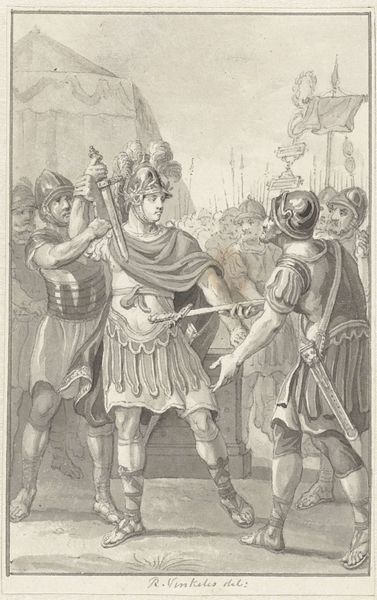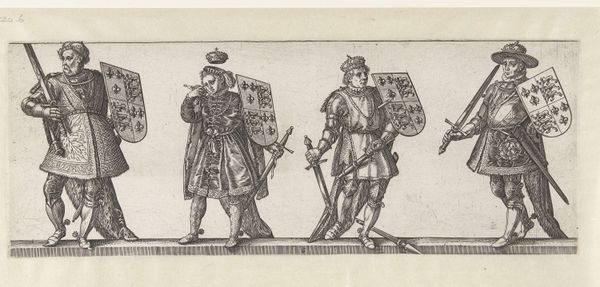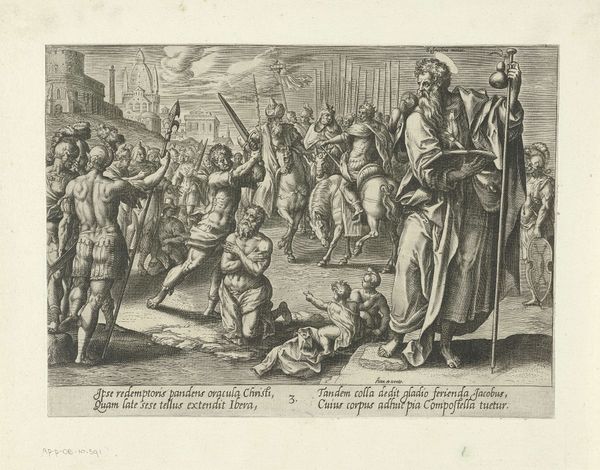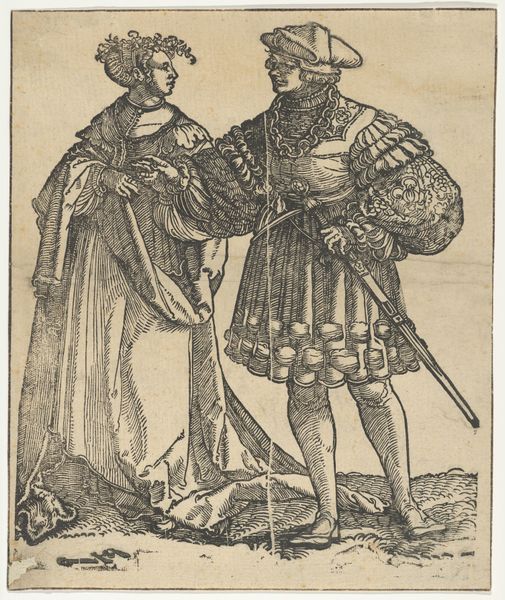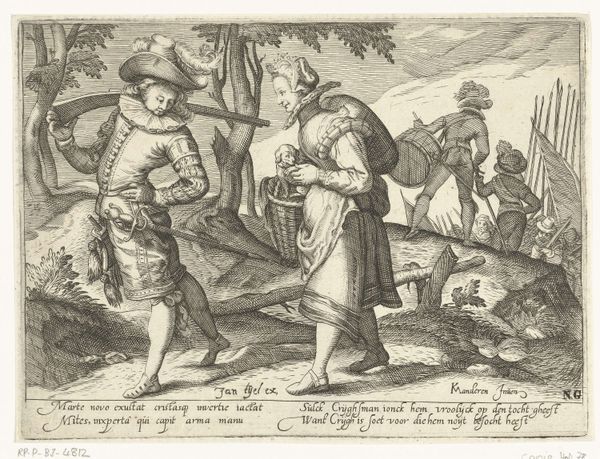
print, engraving
#
baroque
# print
#
figuration
#
history-painting
#
engraving
Dimensions: height 216 mm, width 270 mm
Copyright: Rijks Museum: Open Domain
This print at the Rijksmuseum portrays kings Artaxerxes I and Darius II. Produced anonymously, it's an intriguing example of how historical figures were reimagined through the lens of European cultural values. Look closely, and you'll notice the figures are idealized, classical forms reminiscent of Roman emperors, rather than accurate depictions of Persian rulers. The architectural backdrop blends European and vaguely ‘Eastern’ elements, creating a stage for these figures. This was likely made in the 16th or 17th century, a period when European powers were increasingly engaging with the East, framing it through a mix of fascination and cultural projection. The image isn't just a portrait; it's a statement about power, lineage, and the relationship between Europe and the ‘Orient.’ Understanding this print requires us to delve into the history of European Orientalism. We can research period texts, engravings, and accounts to uncover the biases and assumptions that shaped its creation. This way we can appreciate the potent meanings art accrues through its social life.
Comments
No comments
Be the first to comment and join the conversation on the ultimate creative platform.
